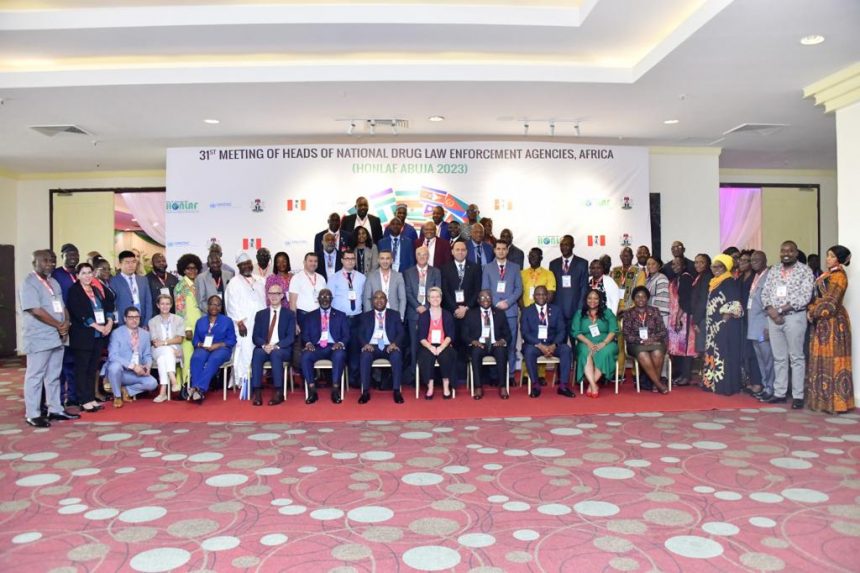Heads of drug law enforcement agencies in Africa have called for the setting up of specialised courts to try drug cases and other organised crimes across the continent.
This was part of recommendations adopted at the end of the weeklong 31st Meeting of Heads of National Drug Law Enforcement Agencies, Africa (HONLAF) in Abuja on Friday, September 29.
Director, Media & Advocacy of National Drug Law Enforcement Agency (NDLEA), Femi Babafemi disclosed this in a statement on Saturday.
According to them, “Governments should consider the establishment of national specialised courts and asset recovery offices dealing with organised crime and money laundering and supporting tracing, recovering and management of proceeds of crime.
“Governments are encouraged to make effective and full use of existing informal regional and international cooperation instruments aiming at facilitating investigations and prosecuting organised crime including drug crimes and related money-laundering, including West African Network of Central Authorities and Prosecutors (WACAP), Asset Recovery Inter-Agency Network for Southern Africa (ARINSA), Asset Recovery Inter-Agency Network of West Africa (ARINWA) as well as the UNODC CRIMJUST programme.”
They also urged governments in African countries to promote cooperation and the sharing of best practices in the confiscation of proceeds of crime, including drug-related cases. “Governments should adopt adequate legal and regulatory frameworks on virtual assets, including cryptocurrencies, to prevent and combat their use for drug-related crime and money-laundering.”
Other recommendations adopted by the HONLAF working group during the annual meeting include asking African governments “to develop and implement drug policy responses that address, indirectly or directly, the environmental impact of illicit crop cultivation, drug manufacture and drug use, taking into consideration positive and negative effects;
“Governments are encouraged to empower indigenous people, youth groups and local communities to protect the land, forest reserves and water sources in their areas, making the best of local knowledge and in line with local interests and needs;
“To address the challenge of limited data, countries are encouraged to promote research and monitoring systems to collect data and establish baselines on environmental impact, which will allow for evidence-based interventions and impact assessment;
“Governments are encouraged to strengthen their capacity to safely dispose of seized drugs, chemicals and the precursors and drug waste, utilising guidance available from relevant national organisations as well as UNODC;
“Governments are encouraged to increase domestic collaboration between law enforcement agencies and other relevant national agencies, such as the ministries of environment and agriculture.”



Leave a Reply